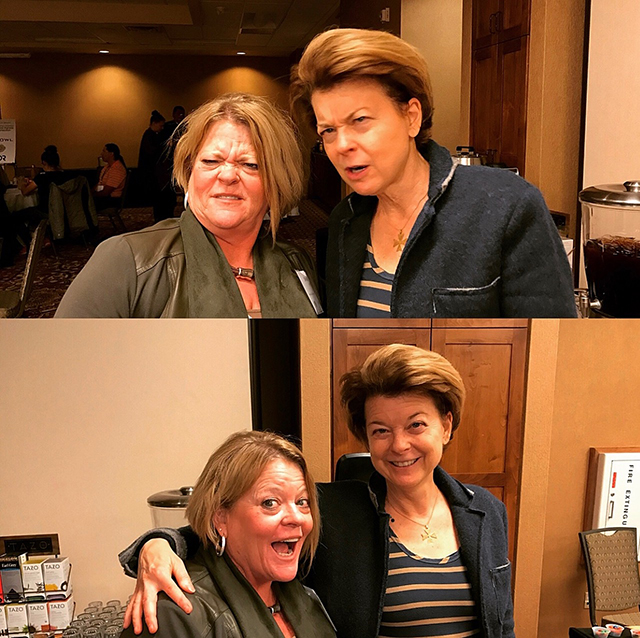
This past week, I had the g.r.e.a.t. pleasure of being the keynote speaker for the Montana Department of Transportation’s Disadvantaged Business Enterprise Conference.
As is the case whenever I speak, I opened up the conversation to the questions and concerns of the audience.
One member (bravely pictured with me, above) mentioned that often she has trouble controlling her face during meetings—to the point that her boss has begun calling her in ahead of time and giving her whatever kooky news there might be so she has time to get her face in order.
Is it possible this has happened to you?
On the other end of the spectrum, of course, are the people with RBF. Or, in politer terms, faces so impassive they appear disengaged/angry.
Have people commented on this with you?
Regardless of which end of the spectrum you fall into (and if you don’t know, now’s the time to ask around…) here are a few tips for a good “listening face”
The first thing to ensure is that it looks alive (Note: we have 43 muscles in our face and only 8 of them are used for smiling….That means you have a lot of muscles left to wake up.)
How can you wake up these muscles? I recommend the pumpkin/raisin face exercise: first, you make your face as big as a jack o’ lantern, then you make it as small as a raisin. (See me doing it, below; my ‘raisin’ is a little off. It always makes me laugh)
Because I don’t recommend sitting in meetings looking like a pumpkin or a raisin, I also want to make you aware of “Smizing”: smiling using only your eyes. Really. It’s a thing. Check the clip.
As you can see, there is more to having a great listening face than meets the eye (literally) which is why—during my Montana presentation—I floated the idea of “Facemasters”: people sitting in circles, assessing and working on their listening faces.
Let me know if you want to join.
Ultimately—ideally– you want to end up with what I refer to as “pleasant expectant face”, because people are more likely to share their ideas/talents/concerns with you if you look like you are interested in what they are about to say.

